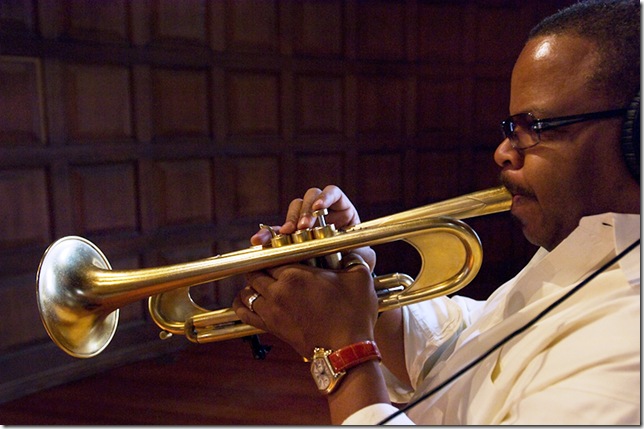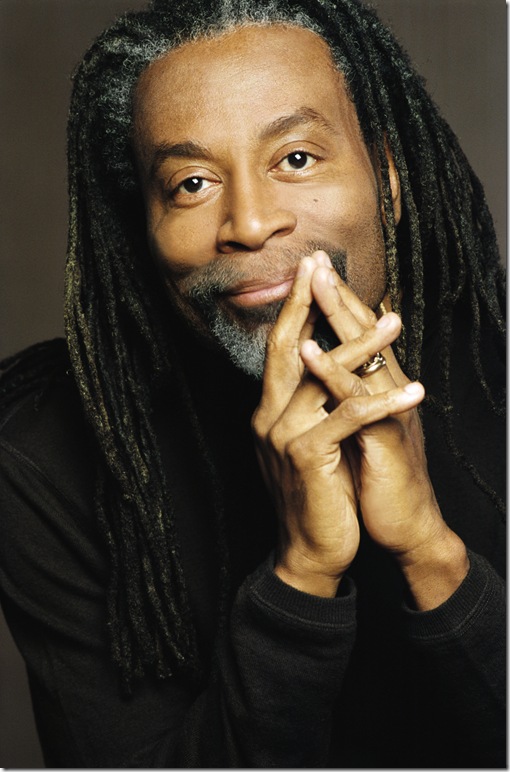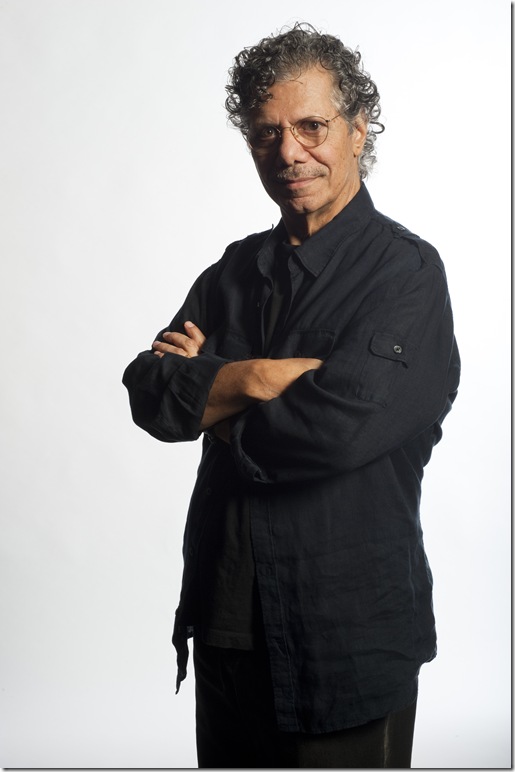Real or perceived, a divide between jazz and classical music has always appeared to exist.
One style is an American art form spawned by the blues; the other originated in Europe. One involves mostly small groups, the other largely orchestras; one embraces improvisation, the other strictly adheres to time-honored written notation.
But ask multiple Grammy-winners like vocalist Bobby McFerrin or trumpeter Terence Blanchard, two of the stars of this weekend’s jazz-meets-classical-themed Jazz Roots: Jazz and the Philharmonic show at the Arsht Center in Miami, and the segregation between the genres is pure perception. And like the more literal form of segregation, a dying notion at that.
“What small jazz ensembles do now, small classical ensembles were doing for centuries,” says Blanchard, the second-year artistic director for the University of Miami Frost School of Music’s Henry Mancini Institute Orchestra, which performs in the program.
“I actually see jazz as a natural extension of what was going on previously in the classical world, so this melding has gone on a lot longer than some people are willing to admit. Young people in orchestras around the country have a lot of varied musical interests. I’ve had friends in the Pittsburgh Symphony who had jazz bands, and even heavy metal bands, on the side. I think that’s always been more of a social and political divide than a musical one. And the perception is changing, but the wheels of change grind slowly.”
“I’m not a musicologist or a music historian,” McFerrin says. “For me, the bridge [between jazz and classical] is natural. Music is beyond genres and definitions. Music is about joy and communication and motion and prayer.”
Jazz and the Philharmonic is presented as part of renowned producer Larry Rosen’s five-year-old Jazz Roots series, and the remainder of its guest stars underscores the no-genres-barred theme.
Veteran Grammy-winning jazz keyboardists Chick Corea and Dave Grusin (who also has Academy Awards for his ample film soundtrack work) bring completely different styles to the table, along with Concord Records pianist Shelly Berg, who’s also dean of the Frost School of Music. Grammy-winning violinist Mark O’Connor’s recording catalog includes effortless shifts between jazz, classical, bluegrass, country and pop styles. Operatic bass-baritone vocalist Eric Owens; classical piano virtuoso Elizabeth Roe, and veteran Broadway dancer and host Desmond Richardson complete the all-encompassing puzzle.
The presentation is a collaboration among the Arsht Center, the Frost School of Music, and the Miami-based National YoungArts Foundation. Established in 1981 to support emerging artists, that organization has honored more than 16,000 of them with more than $6 million in monetary awards, and facilitated more than $100 million in college scholarship opportunities. Blanchard, Richardson, Owens and Roe are all YoungArts alumni; Berg and McFerrin are YoungArts Master Teachers.
“I’m a big proponent of inspiring young people,” says Blanchard, who was also artistic director for the Thelonious Monk Institute of Jazz from 2000-2010. “And that’s exactly what the YoungArts program does. Without organizations like that, I don’t know where I’d be now.”
“I met [YoungArts executive director] Paul Lehr backstage years ago,” says McFerrin, “when he brought his young son to meet me. When he became the director of YoungArts, he invited me to be one of their teachers. Last year, he invited me to work with four promising students in their wonderful series, HBO Masterclass. We spent a few days working together, then they joined me onstage in Germany. It was fun and inspiring.”
Those are two key words for such modern, open-minded musicians and music instructors.
“I mainly teach composition and improvisation,” Blanchard says. “Anyone can learn to play an instrument technically, but innovation requires the inspiration to take that which has been done before and using it to create your own voice. Music has such a rich history. So students learning about it, and then entering into the professional ranks, can often confuse history with reality. But most of them have their voice, since it’s an extension of their personality, which is already there. It’s my job to challenge them to use it to succeed artistically by saying, ‘That’s what was; now show me what will be.’”
Both Blanchard and McFerrin came by their open-minded musical approaches naturally. The 50-year-old trumpeter was born in New Orleans, where he’s lived for most of his life, and his father was an operatic baritone. In close proximity to the Marsalis family, Blanchard studied with patriarchal pianist Ellis, and replaced his trumpet-playing son Wynton in Art Blakey’s Jazz Messengers in 1983 after Wynton recommended him.
By 1990, Blanchard had started his solo recording career, plus a long association with noted film director Spike Lee. He played on the soundtrack to Lee’s breakout hit Do the Right Thing; coached and performed the trumpet parts for star Denzel Washington in the jazz-themed Mo’ Better Blues, and composed scores for Lee’s films from Malcolm X (1992) through Miracle at St. Anna (2008).
The trumpeter also composed the soundtrack for, and appeared in, Lee’s 2006 documentary about Hurricane Katrina’s impact on his hometown, When the Levees Broke: A Requiem in Four Acts. Blanchard’s 2007 CD A Tale of God’s Will (A Requiem for Katrina), earned him a best large jazz ensemble Grammy.
His 20th CD as a leader is already recorded for release in 2013, and features bassist Ron Carter, saxophonist Ravi Coltrane and guitarist Lionel Loueke. Blanchard has also broken into Broadway, composing for playwright Stephen Adly Guirgis’ 2011 production The Mother***** With a Hat (which starred Chris Rock) and for director Emily Mann’s 2012 revival of Tennessee Williams’ Pulitzer Prize-winning A Streetcar Named Desire. Blanchard’s latest release is the 2012 soundtrack to Red Tails, a film about the Tuskegee Airmen directed by George Lucas.
“It was a great experience to work with George,” Blanchard says. “He has a specific sound that he looks for in his films, and I’m very happy to have had the chance to spread my wings that way.”
The 62-year-old McFerrin was born in New York City as the product of opera-singing parents. He started out playing piano and clarinet, and studied composition in college, but McFerrin was set on truly transforming the human voice into an unorthodox instrument. With his incredible rhythmic and octave shifts ― from falsetto to bass notes ― he succeeded on his self-titled 1982 debut album for Elektra Records.
McFerrin’s prowess allows him to sound like more than one vocalist, and his additional body percussion even appears to add instrumentation. His 1984 sophomore outing The Voice made history by becoming the first solo vocal album, with no instruments or overdubs, ever to be released on a major label. By 1988’s Simple Pleasures, and its smash hit Don’t Worry, Be Happy, he’d become a star through one of the most recognizable pop tunes of all time.
Yet the singer refused to rest on his laurels, recording and performing with artists from jazz luminaries Corea and Herbie Hancock to the Saint Paul Chamber Orchestra and cellist Yo-Yo Ma. In a small sampling of McFerrin’s influences, he lists his father, Keith Jarrett, Miles Davis, Fred Astaire, Eric Clapton, Sly Stone, Judy Garland, Hancock, Bach, and Mozart.
“My father (Robert McFerrin Sr.) was the first African-American to sing at the Metropolitan Opera,” he says, “and my mother taught for years at the college level. They were very serious about their work, but they also just loved to listen. The house was full of jazz and blues and symphonic music and opera. So I’ve always had my ears filled with all kinds of music, but my education started at birth. I remember my sister and I singing together, crib to crib.”
The Jazz and the Philharmonic program will include orchestral and jazz compositions by Blanchard, Corea, Grusin, Mancini, Aaron Copland, Bach, and Debussy. McFerrin will engage in duo and trio performances with Corea and Grusin, as well as sing an improvised duet along with the creative dance of Richardson, a Tony Award nominee and former principal with Alvin Ailey American Dance Theater and American Ballet Theatre.
Corea’s standard Spain will combine with Joaquin Rodrigo’s Concierto de Aranjuez to form Spanish Suite; Grusin and O’Connor will duet on the keyboardist’s famed composition Mountain Dance, and the entire ensemble will participate in the grand finale, the fanfare from Richard Strauss’ Also Sprach Zarathustra.
Of particular note will be a Blanchard selection, featuring Owens as a soloist, from the trumpeter’s forthcoming opera Champion. It will be the first-ever performance from a work set to premiere in June at the Opera Theatre of St. Louis, and it centers on former welterweight and middleweight boxing champion Emile Griffith.
The fighter from the U.S. Virgin Islands led a closeted gay lifestyle in the early 1960s, and is tragically best-known for his 1962 fight with Benny Paret, after which Paret fell into a coma and died. After years of carrying feelings of guilt from the experience, Griffith met up with Paret’s son, who convinced him he was blameless. Blanchard hopes the opera will stir up debate about current athletes who are gay but still feel the need to keep that fact under wraps.
“Politically and socially, Emile’s story is sadly still relevant,” says Blanchard. “In his autobiography, he said, ‘I killed a man and the world forgave me, but I loved a man and the world could never forgive me,’ which is a very profound statement.”
Some of the stars of Jazz and the Philharmonic have performed together before; some have not.
“I’ve never officially worked with Bobby McFerrin before,” Blanchard says, “so that will be fun. I’ll also be working with Eric Owens for the first time in the excerpt from ‘Champion.’ I interact with Shelly Berg, who’s a great musician, at the Frost School, and I’ve worked with Chick Corea and Mark O’Connor before. They’re amazing. Like me, Mark thinks that an introduction to classical music doesn’t have to be through the European tradition. There’s an American folklore here that’s appropriate to get kids interested in classical music. And Dave Grusin is my man. He had a summer music program that he ran in Santa Fe, and I had my students from the Monk Institute play there for a couple years.”
McFerrin has worked with many of the same principals, and speaks of them in equally reverential terms.
“I can’t wait to play with Dave Grusin again,” he says. “I met him when I was a 19-year-old college student working on my arranging, and he took me under his wing. I had the honor of touring with Chick Corea last summer, and I’m always excited for the adventure. Playing with him is like a trek into the beautiful wilderness. I had the pleasure of working with Mark O’Connor and Yo-Yo Ma on a PBS special called ‘Loosely Mozart.’ Chick was on that program, too. And I’m always up for playing with great people; meeting new musicians. It should be fun.”
See Jazz Roots: Jazz and the Philharmonic at 8:30 p.m. Friday in the Knight Concert Hall at the Adrienne Arsht Center, 1300 Biscayne Blvd., Miami ($25-150, 305-949-6722).


